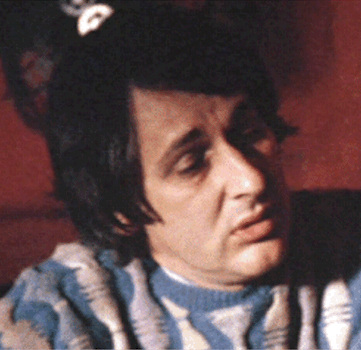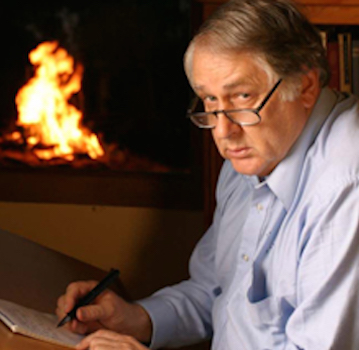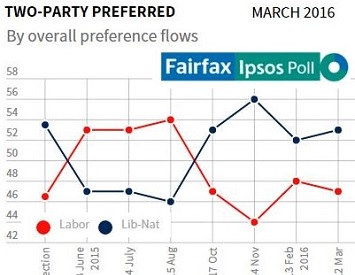Tony Abbott should come clean about what he knew about the homosexual rapes that occurred at the seminary while he was a trainee priest, and about which he appears to be covering up, writes Bob Ellis.
Nine years after I first read them, I quoted at last in my blog some sentences from Michael Duffy's cool Plutarchian book Latham and Abbott. They were these:
The homosexual culture at St Patrick's from the 1979s to the early 1990s was quite extraordinary. A few who were there have told me stories of behaviour ranging from the sharing of pornography to the seduction ‒ and worse ‒ of younger seminarians. At the 1988 Christmas party (after Abbott had left) two men discovered that each had been having an affair with the same third man and a public fight ensued, during which the chapel door was smashed. The lovers were within a year of being ordained — and the three were expelled.
In the light of all this, the most interesting thing about Abbott's time there is that he persisted.
Nine, ten, twenty years ago, these sentences would have seemed unremarkable. Fred Schepsi's film The Devil's Playground is in part about homosexual priests and their interest in young seminarians.
Lustful priests are as old as Boccaccio, Chaucer, Rabelais. The great French historian L. Roy Ladurie's Montaillou, the researched portrait of a medieval village, has a priest with a harem in it — in 1325. But this was different.
It was in a book about Tony Abbott, universally thought our next prime minister. It was about his years as a trainee priest; when he knew of what seems, on the face of it, homosexual rapes he covered up, and continues to cover up, now.
One of his fellow seminarians was John Gerard Nestor, whom he vouched for after he was convicted of tampering with an altar boy. After Abbott, a federal minister, testified to his character, he was let off, and spent no time in gaol. Of their earlier relationship, Abbott said:
He was a man with high expectations of himself and others, and I can recall on occasions being more than a little annoyed with him, because, you know, he would want to bring me up to the mark, bring me back to the path of virtue from time to time, and this didn't always go over too well with me. And I guess it could annoy others as well.
What can this mean? It may mean Abbott was having heterosexual relationships in breach of his vows and Nestor, perhaps for complex reasons, didn't like this, and commanded him back to celibacy.
'Not as celibate as I should have been,' Abbott famously said of the years when, at 26, 27, 28 and 29 he tested himself thus for the priesthood. It is to be wondered who the girls were, and what ages they were, and if it was in clerical garb they met him, or another disguise.
The timing, too, of this spiritual adventure is to be wondered at. He had already, at nineteen, refused to marry a pregnant girl, and put her son up for adoption.
He had already been at Oxford, unchaste and rowdy, a boxing blue. He had a law degree, and a lot of kudos as a footballer. What was he doing for so long among active hypocritical homosexuals at Manly?
At thirty, he was journalist, and soon after a married man and a father; at thirty-seven, he was an MP, at 40 a Minister — and his career makes easy logical sense after that. But what did this episode, this adventure in pained chastity, mean? He has written very little about it, in his memoir Battlelines devoting a page and a half to it. What did it portend? What is he keeping from us?
One thing, surely, is the name of the rapist and his victim, and the fate, years after, of his victim. Did he suicide? Did he tumble into spiritual despair? Was there only one victim? Was there only one assailant? Will he tell the police these things at last, or will he continue to cover them up?
It is possible these things would never have been raised, by me at any rate, if Abbott himself had not raised the 'character issue' against his friend Slipper and his foe Thomson. The latter, he declared so 'stained' that his right to vote in the House should be revoked, the very first instance of this in a thousand years of democracy, because he used whores, or was said to, and paid for them irregularly.
One wonders, too, if the covering up of crimes that once in this country were capital crimes is an equal reason to revoke Abbott's right to vote in the House. By his own measure, it should be.
I say these things with some difficulty, because I had a friendship for a while with Tony. We dined a few times, launched each other's books, agreed on a good few things, abortion, the monarchy, a green army, B.A Santamaria. We enjoyed each other's wary, joshing, conversation for a total of maybe nine hours in a couple of years. But when he proposed to 'turn back the boats', even if it meant the drowning or beating of children, and when he did such things as might drive his friend Slipper to suicide, it occurred to me that he was greatly at fault and should be given no quarter.
And that it was on the word of Duffy – whose books Ellis Unplugged and Ellis Unpulped, with hundreds of factual errors, obscenely defamed me – that he was then so accused, gave me some additional relish when I brought it up.
Abbott has probably obstructed the course of justice, letting known predators work their will long years after he knew what they were like and could have impeded their dark fumblings with a phone call, and he should be questioned by police.
And he should not, of course, become Prime Minister.
His record is too stained for that.
This work is licensed under a Creative Commons Attribution-NonCommercial-NoDerivs 3.0 Australia License









